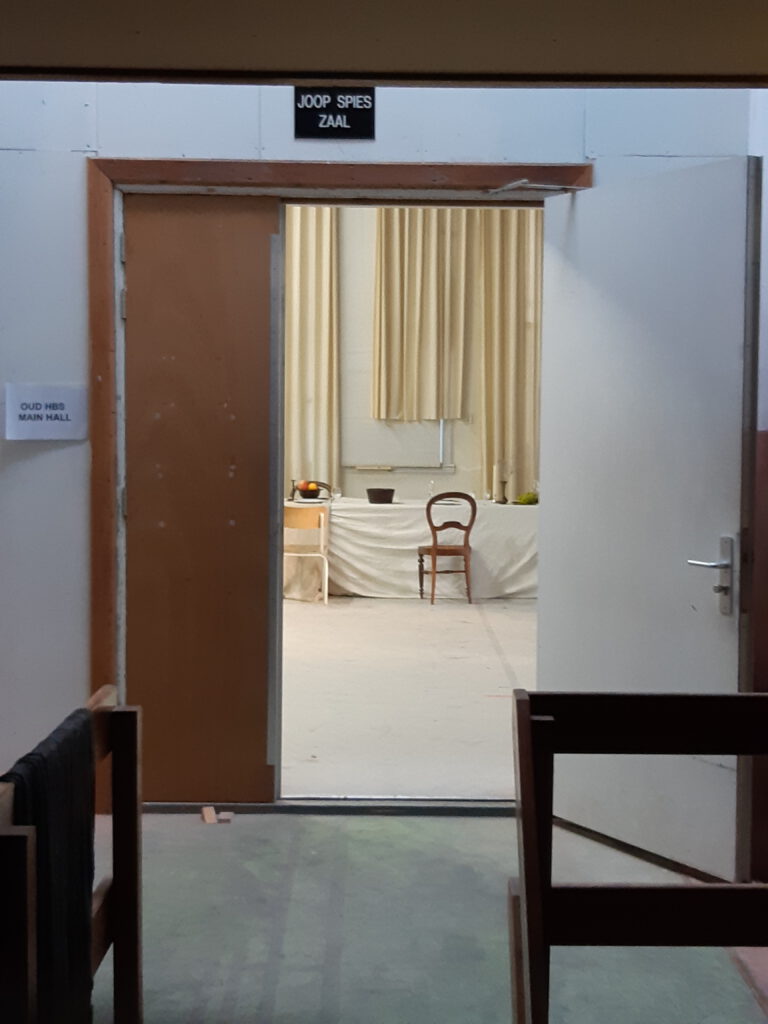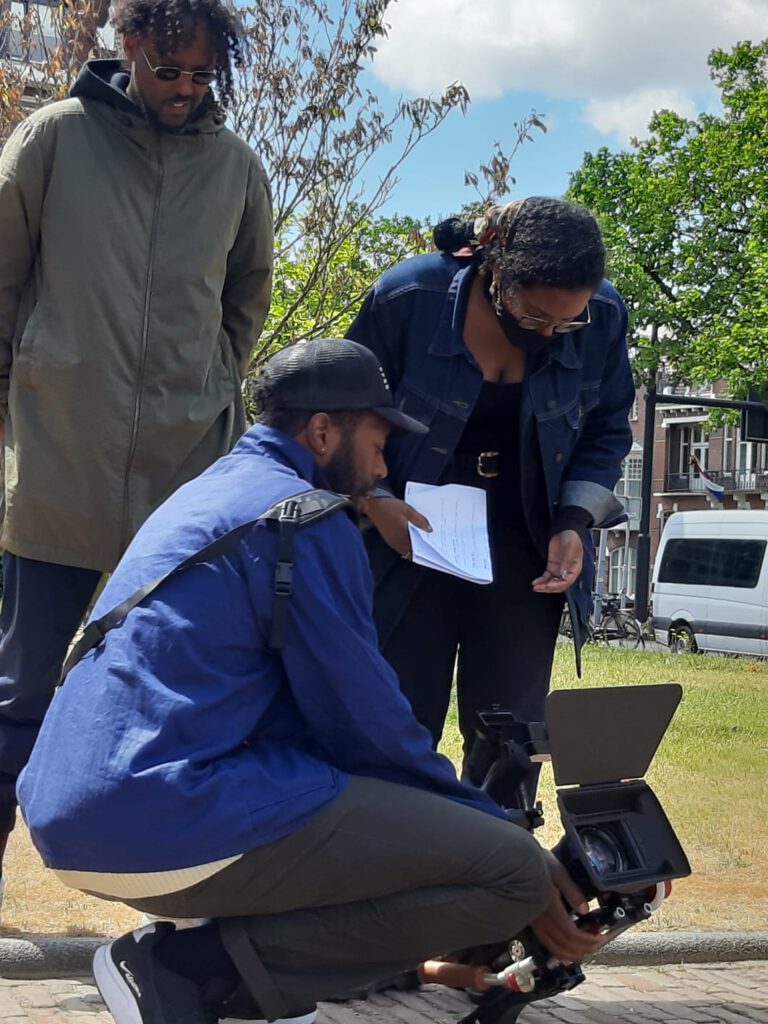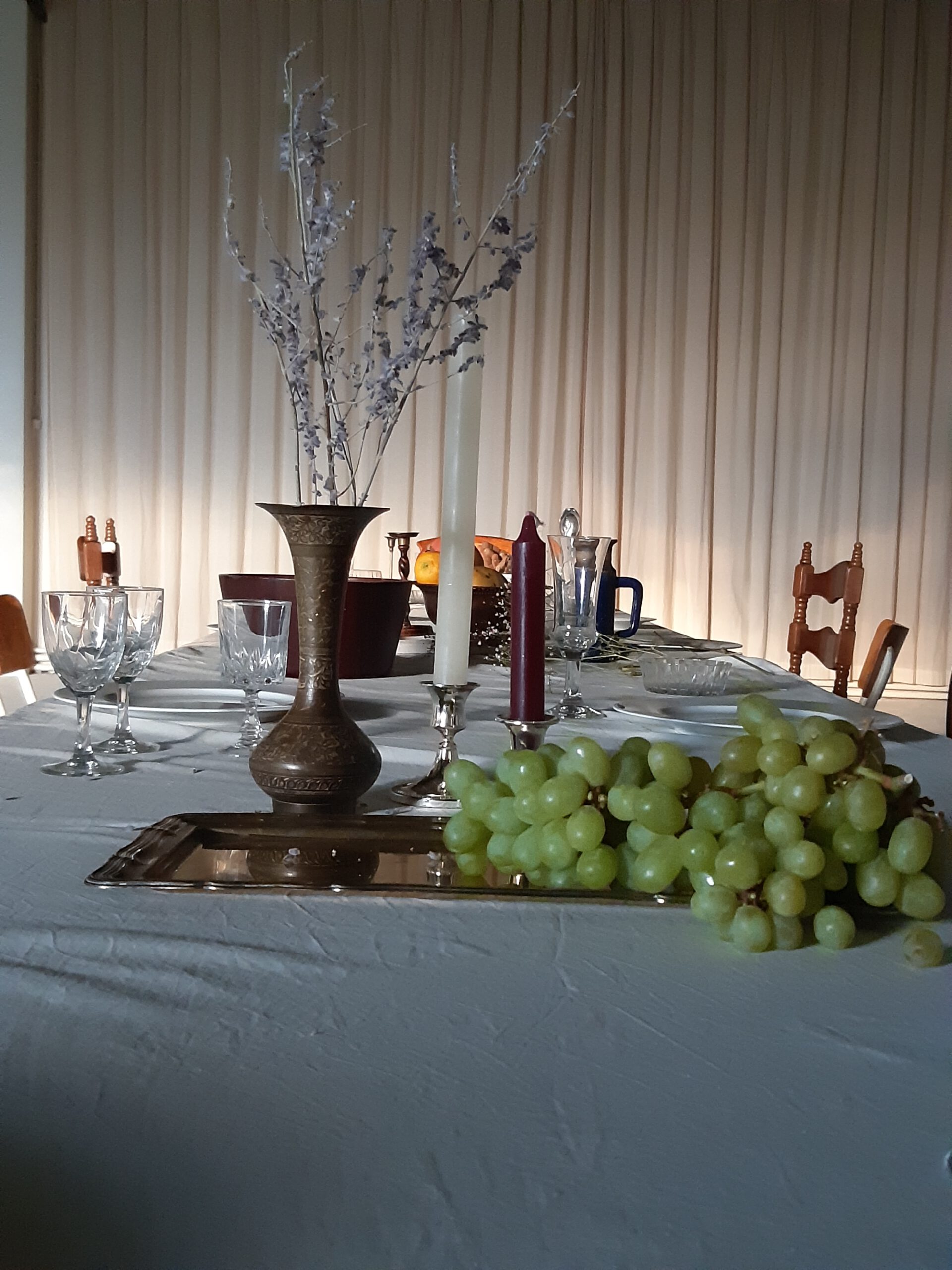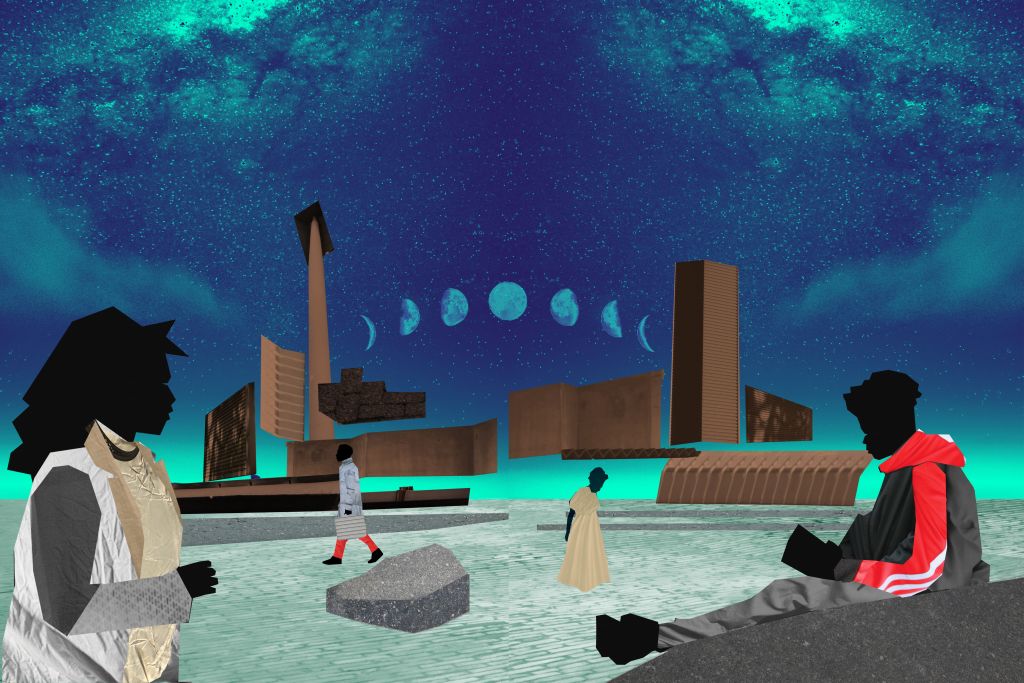
YouthDem x The Ummah Chroma: G/D THYSELF: Spirit Strategy On Raising Free Black Children
The installation G/D THYSELF: Spirit Strategy On Raising Free Black Children is inspired by the short film AS TOLD TO G/D THYSELF (2019) by The Ummah Chroma collective. This film, shot in Baltimore, USA, unfolds as a non-linear, cosmic journey through youth and old age. Inspired by this city’s rich history, The Ummah Chroma visualise different experiences that show the flowering of Black culture and community; liberating images that honour the victories of the region’s emancipatory creative spirit.
These victories, however, come at a price, such as being socialised as ‘different’, respectability politics (joining the political majority as a survival mechanism) and the violent reactivity of white ‘fear’, all of which are also part of the global Black experience. This is likewise the case in Rotterdam – Baltimore’s sister city – where more than two-thirds of young people have a migrant background. The city has a majority of minorities who are confronted daily by institutional white supremacy aided by hyper-capitalism.
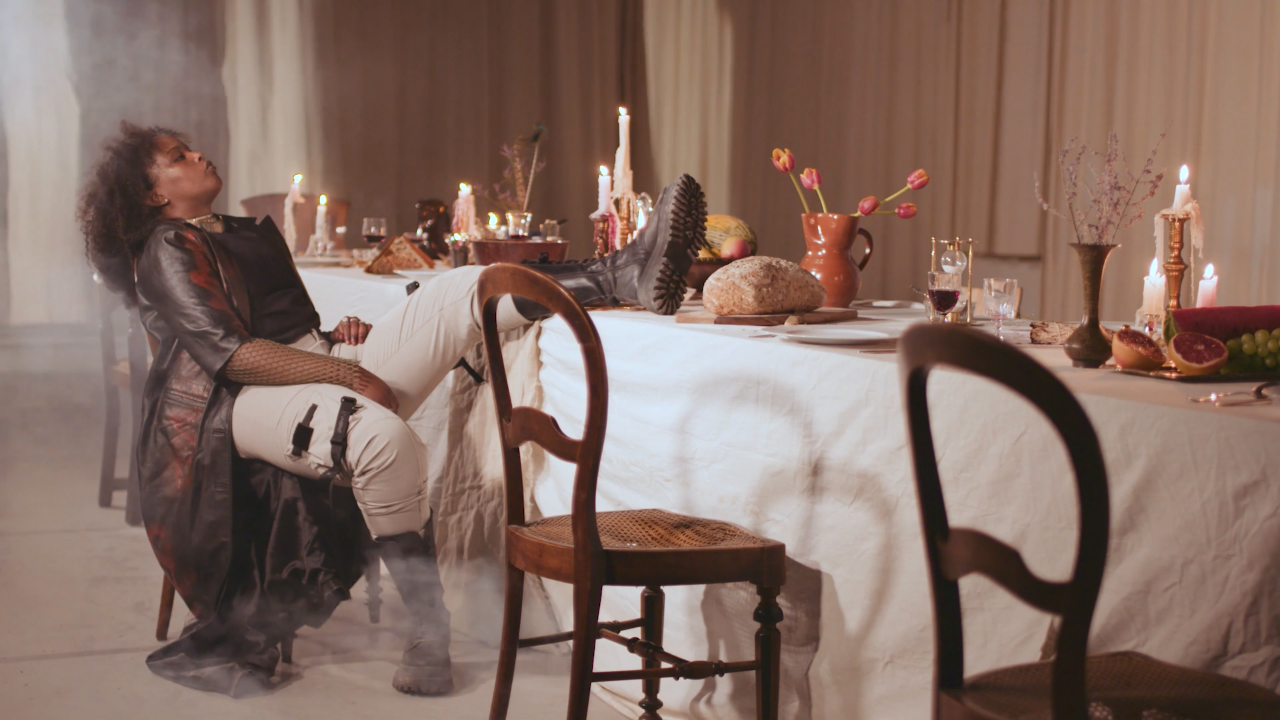
If The Walls Could Speak (2020)
The short film If The Walls Could Speak (2020) was jointly conceived and produced by the part of the YouthDem group that Concrete Blossom convened and guided for this occasion. Janilda Bartolomeu, founder and owner of the film production company The Creole Lens, developed the concept and screenplay. True to her company’s name, she wanted this project to offer a view of the world ‘through a Creole lens’. The Caribbean-French concepts of créolité and créolisation provide a prism through which we can see how rapidly our understanding of the world around us is changing. The narrative of Janilda’s film does not follow a linear conception of time but transcends it in such a way that realities, relationships and positions can arise that shake traditional chronological logic. Janilda Bartolomeu partly attributes this to the fact that Creole communities are not stuck in the chronology of an unambiguous history, especially that of the family.
